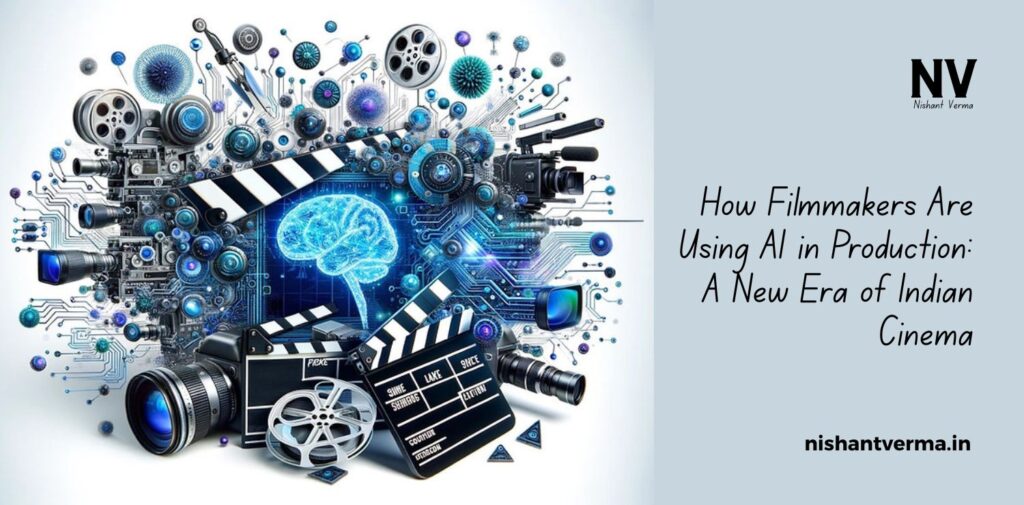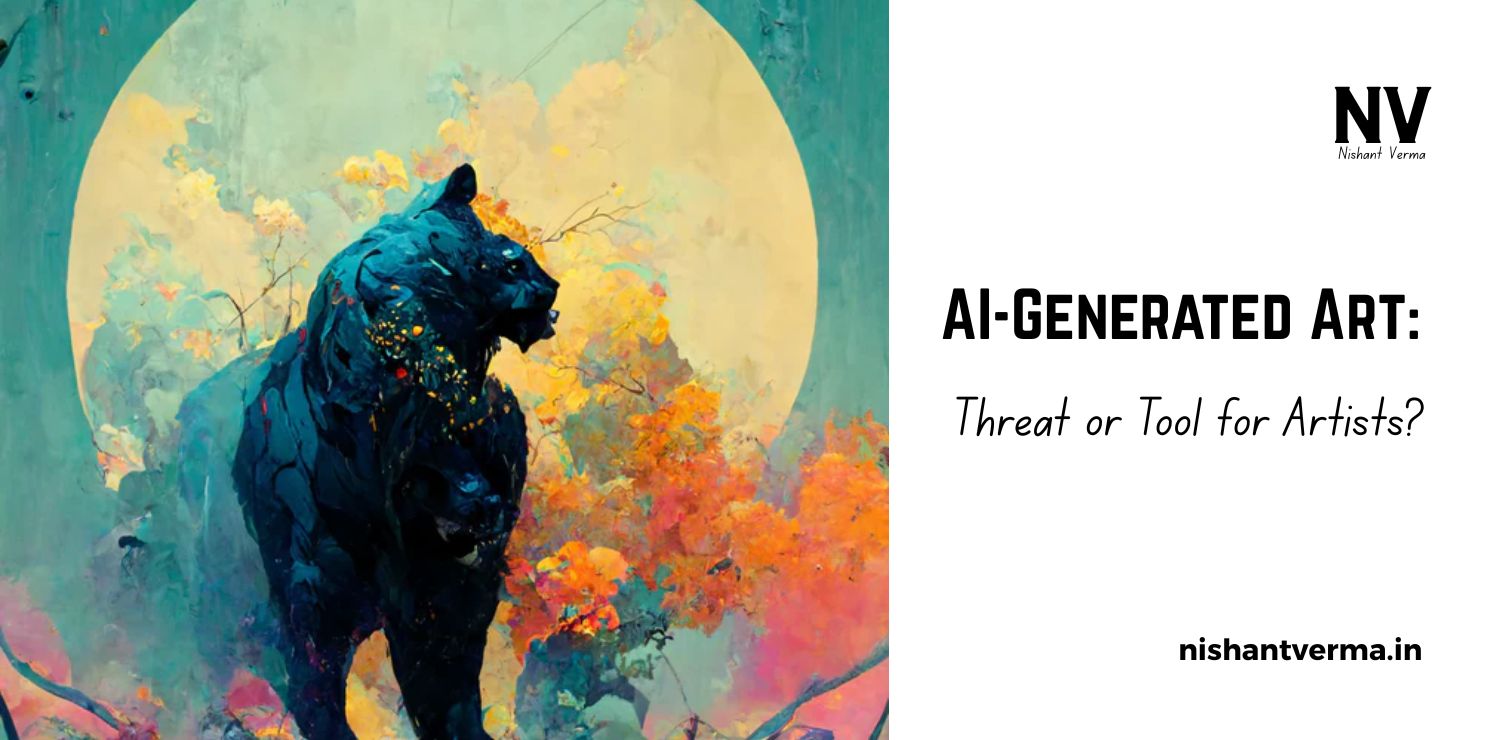Artificial Intelligence (AI) is changing the world in many ways, and the film industry is no exception. From scriptwriting to editing, AI is helping filmmakers save time, reduce costs, and improve the quality of their films. In India, where the film industry is one of the largest in the world, many production houses and directors have started using AI tools to make better movies in less time. In this article, we will explore how AI is being used in different stages of film production and why it is becoming popular in Indian cinema.
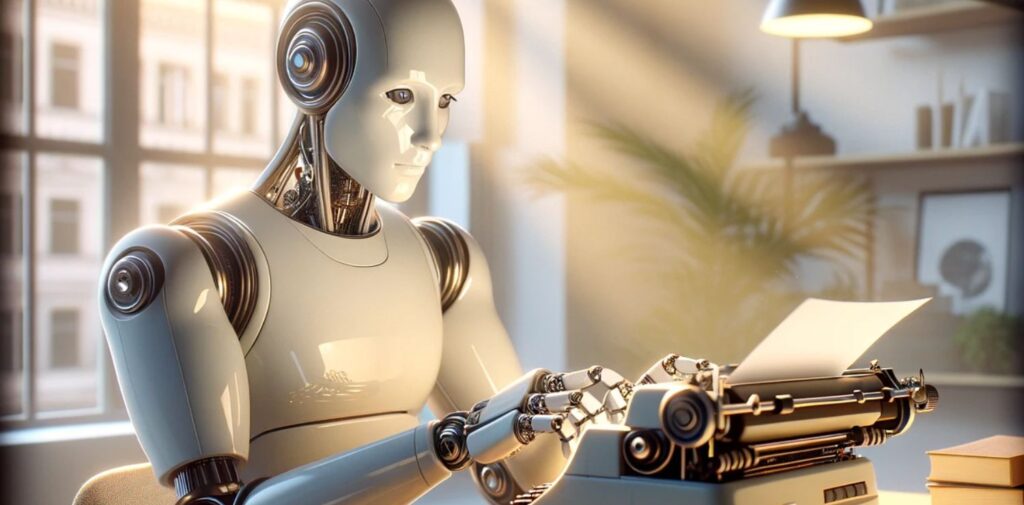
AI in Scriptwriting and Story Development
Writing a good script is the foundation of any film. It takes time, creativity, and lots of effort. But now, AI tools are helping writers create engaging stories by giving them suggestions on plot, dialogues, and characters. AI-based software can analyze thousands of successful movie scripts and give insights into what kind of story might work well with the audience.
For example, a writer can enter a basic idea or plot into an AI tool, and it will suggest different story arcs, character developments, and even possible endings. This doesn’t mean the AI writes the full story, but it supports the writer by speeding up the creative process. In India, where we have a diverse audience with different tastes, AI can also help by analyzing what kind of stories work in different regions, languages, and age groups.
AI in Casting and Pre-Production Planning
Casting the right actors for the right roles is one of the most important parts of film production. AI is now being used to analyze which actors are more likely to attract audiences for a particular genre or story. By studying past movies, box office results, and social media trends, AI can suggest a shortlist of actors who might be a good fit for the film.
AI can also help in location scouting by analyzing images, maps, and data from various sources to suggest suitable places for shooting. This can save both time and money, especially when shooting in remote or unfamiliar areas. In India, where there are many beautiful and culturally rich locations, AI can suggest new and unexplored areas that match the director’s vision.
AI in Visual Effects (VFX) and Animation
Creating stunning visual effects is no longer just about expensive software and big teams. AI is now being used to automate parts of the VFX process, which was earlier time-consuming and costly. For example, AI can help in background removal, face replacement, object tracking, and even generating realistic movements for animated characters.
In the Indian film industry, where VFX-heavy movies like “Baahubali” and “Brahmastra” have set new standards, AI can help filmmakers bring their imagination to life with better visuals at a lower cost. Independent filmmakers who earlier couldn’t afford advanced VFX now have the option to use AI-based tools to enhance their production quality.
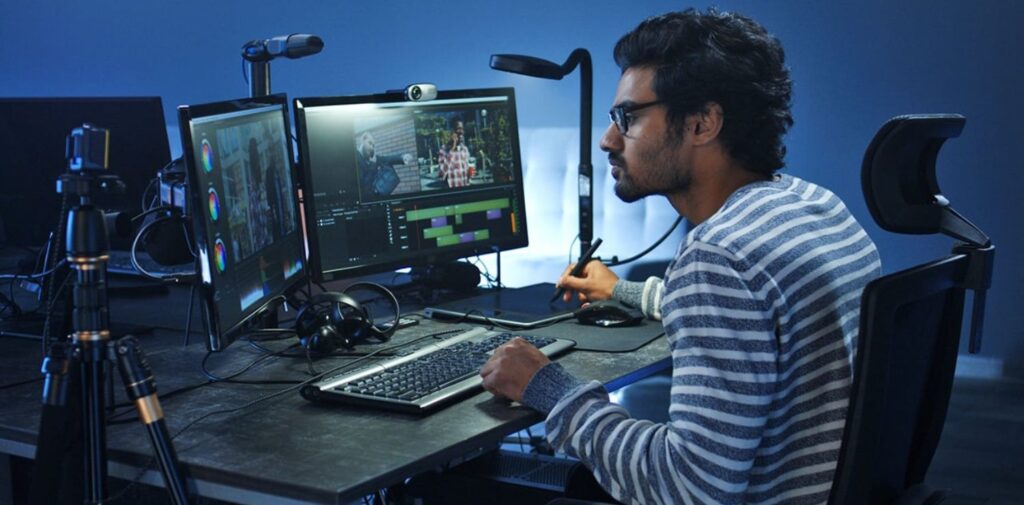
AI in Editing and Post-Production
Editing is one of the most crucial stages in filmmaking. AI is making it faster and more efficient. AI-based editing tools can automatically organize footage, select the best takes, and even suggest edits based on the mood and pace of the film. This allows editors to focus more on the creative side rather than spending hours sorting clips.
For example, an AI tool can detect emotions in a scene and suggest background music or color grading that matches the tone. This is especially useful in Indian films where emotional storytelling and music play a big role in the viewing experience. AI can also be used to automatically generate subtitles, improve audio quality, and even dub dialogues in different languages using voice cloning.
AI in Marketing and Audience Analysis
Making a great movie is not enough if it doesn’t reach the right audience. AI is helping filmmakers and producers in India understand audience behavior better. By analyzing data from social media, streaming platforms, and ticket sales, AI can predict which type of movie will perform well in which region.
It can also help in designing better trailers, posters, and marketing strategies. For example, AI can analyze which scenes from a movie are the most engaging and help create a trailer that grabs attention. It can also suggest the best time to release a film, based on factors like holidays, festivals, and competing releases.
This is very helpful in the Indian context where the audience is very diverse, and each region has different viewing habits. AI helps producers customize their marketing for different states, languages, and demographics, leading to better success at the box office.
Challenges and Concerns with AI in Filmmaking
While AI offers many benefits, it also brings some challenges. One concern is the loss of creativity. Some people worry that if AI becomes too involved in storytelling and editing, it may take away the human touch that makes movies special. Others are concerned about job losses in the industry, as AI tools can replace some manual tasks done by artists and technicians.
There are also concerns about data privacy and copyright issues, especially when AI is used to create music, dialogues, or videos based on existing content. In India, where the film industry provides jobs to thousands of people, it’s important to find a balance between using AI and protecting human creativity.
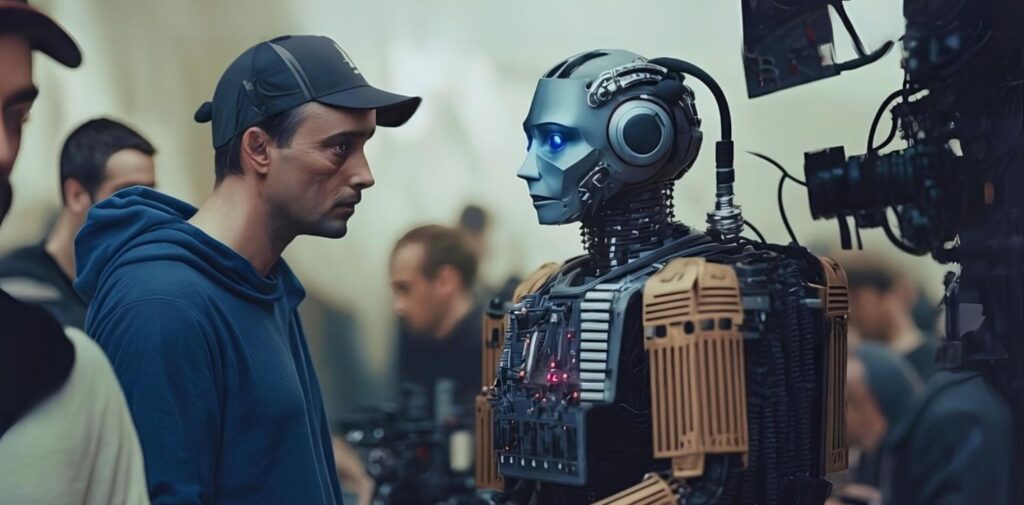
The Future of AI in Indian Cinema
The Indian film industry is evolving rapidly, and AI is going to play a major role in shaping its future. From Bollywood to regional cinema, filmmakers are starting to understand the power of AI and how it can make the filmmaking process faster, smarter, and more efficient.
Big production houses are already investing in AI technology, and soon, smaller studios and even independent filmmakers will have access to these tools. With the rise of OTT platforms like Netflix, Amazon Prime, and Disney+ Hotstar in India, the demand for high-quality content is increasing. AI can help meet this demand by enabling faster production without compromising on quality.
AI is not here to replace filmmakers, but to support them. Just like how cameras and computers changed filmmaking in the past, AI is the next big step. It will help Indian filmmakers tell better stories, reach wider audiences, and create movies that are not only entertaining but also technically advanced.
Conclusion:
In conclusion, AI is bringing a silent revolution in the Indian film industry. It is making filmmaking smarter, more creative, and more audience-focused. Whether you’re a budding writer, a director, an editor, or just a movie lover, understanding how AI is shaping cinema can open up new possibilities and inspire the next generation of storytellers.

